“I learned that what you give comes back to you many fold,” says Peggy White Wellknown Buffalo, founder of the Center Pole organization. “I grew up poor with nothing, but I have always shared whatever I had, and it has always come back to me in many unexpected ways.” The Center Pole, a 501(c)(3) Native nonprofit organization, characterizes this sentiment. Peggy grew up in Garryowen, Montana as a member of the Crow Tribe along with her eight siblings. Influenced by the hardships she faced while growing up on the Crow Indian Reservation, Peggy founded the Center Pole in 1999. The organization strives to strengthen the wellbeing of the Crow Community, providing them with the means necessary to flourish in today’s society while embracing their own values and traditions.
Peggy conveys to me how in the 1800’s, “when [the Crow people] were placed on reservations, [the United States Government] gave each Crow member land to live on.” Peggy’s great-grandmother, Ha Eh Gush Wellknown Buffalo, was thus allotted a piece of land. When she passed, Peggy inherited a portion of her great-grandmother’s land and decided to found the Center Pole on it. Peggy explains how, “food has always been the way to control our votes, our power, our wellbeing,” but the Center Pole aims to curtail this.
In Crow culture, the Center Pole “gives strength and guidance and it’s where you go for help. It connects you to heaven, to a bada di a, the Creator” tells Peggy. Today, the Center Pole offers a variety of programs and services to the Crow Community that aim to strengthen knowledge and awareness and promote positive systemic change in Native communities. Currently, the Center Pole transports and distributes around 120,000 pounds of food to community members each month.

By selflessly using her piece of inherited land to positively impact the lives of others, Peggy epitomizes an altruistic, giving persona—utilizing the land not for herself, but for those in need. She states that sharing and giving what you have, “is an indigenous way that works,” it always comes back to you. “It is like trusting your universe and the Creator completely.”
As such, just last week, a man stopped by the Center Pole and handed Peggy an envelope with $4,000 in cash to help her continue with her work. The man appeared “just out of the blue” she told me. The man had been researching Peggy and the organization and felt inspired to contribute toward furthering the Center Pole’s mission. Peggy provides the Universe with her energy and resources, and the Universe and people around her return to her with the same. In addition to moments like this, Peggy says she focuses on “the happiness and positive change in [her] community,” which motivates her to continue her impactful work every day.
On July 17th, The Farmlink Project helped connect 40,000 pounds of potatoes from Strebin Farms in Troutdale, Oregon to the Center Pole in Garryowen, Montana.

< Back
“I learned that what you give comes back to you many fold,” says Peggy White Wellknown Buffalo, founder of the Center Pole organization. “I grew up poor with nothing, but I have always shared whatever I had, and it has always come back to me in many unexpected ways.” The Center Pole, a 501(c)(3) Native nonprofit organization, characterizes this sentiment. Peggy grew up in Garryowen, Montana as a member of the Crow Tribe along with her eight siblings. Influenced by the hardships she faced while growing up on the Crow Indian Reservation, Peggy founded the Center Pole in 1999. The organization strives to strengthen the wellbeing of the Crow Community, providing them with the means necessary to flourish in today’s society while embracing their own values and traditions.
Peggy conveys to me how in the 1800’s, “when [the Crow people] were placed on reservations, [the United States Government] gave each Crow member land to live on.” Peggy’s great-grandmother, Ha Eh Gush Wellknown Buffalo, was thus allotted a piece of land. When she passed, Peggy inherited a portion of her great-grandmother’s land and decided to found the Center Pole on it. Peggy explains how, “food has always been the way to control our votes, our power, our wellbeing,” but the Center Pole aims to curtail this.
In Crow culture, the Center Pole “gives strength and guidance and it’s where you go for help. It connects you to heaven, to a bada di a, the Creator” tells Peggy. Today, the Center Pole offers a variety of programs and services to the Crow Community that aim to strengthen knowledge and awareness and promote positive systemic change in Native communities. Currently, the Center Pole transports and distributes around 120,000 pounds of food to community members each month.

By selflessly using her piece of inherited land to positively impact the lives of others, Peggy epitomizes an altruistic, giving persona—utilizing the land not for herself, but for those in need. She states that sharing and giving what you have, “is an indigenous way that works,” it always comes back to you. “It is like trusting your universe and the Creator completely.”
As such, just last week, a man stopped by the Center Pole and handed Peggy an envelope with $4,000 in cash to help her continue with her work. The man appeared “just out of the blue” she told me. The man had been researching Peggy and the organization and felt inspired to contribute toward furthering the Center Pole’s mission. Peggy provides the Universe with her energy and resources, and the Universe and people around her return to her with the same. In addition to moments like this, Peggy says she focuses on “the happiness and positive change in [her] community,” which motivates her to continue her impactful work every day.
On July 17th, The Farmlink Project helped connect 40,000 pounds of potatoes from Strebin Farms in Troutdale, Oregon to the Center Pole in Garryowen, Montana.

Peggy White Wellknown Buffalo
Founder of The Center Pole
“I learned that what you give comes back to you many fold,” says Peggy White Wellknown Buffalo, founder of the Center Pole organization. “I grew up poor with nothing, but I have always shared whatever I had, and it has always come back to me in many unexpected ways.” The Center Pole, a 501(c)(3) Native nonprofit organization, characterizes this sentiment. Peggy grew up in Garryowen, Montana as a member of the Crow Tribe along with her eight siblings. Influenced by the hardships she faced while growing up on the Crow Indian Reservation, Peggy founded the Center Pole in 1999. The organization strives to strengthen the wellbeing of the Crow Community, providing them with the means necessary to flourish in today’s society while embracing their own values and traditions.
Peggy conveys to me how in the 1800’s, “when [the Crow people] were placed on reservations, [the United States Government] gave each Crow member land to live on.” Peggy’s great-grandmother, Ha Eh Gush Wellknown Buffalo, was thus allotted a piece of land. When she passed, Peggy inherited a portion of her great-grandmother’s land and decided to found the Center Pole on it. Peggy explains how, “food has always been the way to control our votes, our power, our wellbeing,” but the Center Pole aims to curtail this.
In Crow culture, the Center Pole “gives strength and guidance and it’s where you go for help. It connects you to heaven, to a bada di a, the Creator” tells Peggy. Today, the Center Pole offers a variety of programs and services to the Crow Community that aim to strengthen knowledge and awareness and promote positive systemic change in Native communities. Currently, the Center Pole transports and distributes around 120,000 pounds of food to community members each month.

By selflessly using her piece of inherited land to positively impact the lives of others, Peggy epitomizes an altruistic, giving persona—utilizing the land not for herself, but for those in need. She states that sharing and giving what you have, “is an indigenous way that works,” it always comes back to you. “It is like trusting your universe and the Creator completely.”
As such, just last week, a man stopped by the Center Pole and handed Peggy an envelope with $4,000 in cash to help her continue with her work. The man appeared “just out of the blue” she told me. The man had been researching Peggy and the organization and felt inspired to contribute toward furthering the Center Pole’s mission. Peggy provides the Universe with her energy and resources, and the Universe and people around her return to her with the same. In addition to moments like this, Peggy says she focuses on “the happiness and positive change in [her] community,” which motivates her to continue her impactful work every day.
On July 17th, The Farmlink Project helped connect 40,000 pounds of potatoes from Strebin Farms in Troutdale, Oregon to the Center Pole in Garryowen, Montana.

.png)


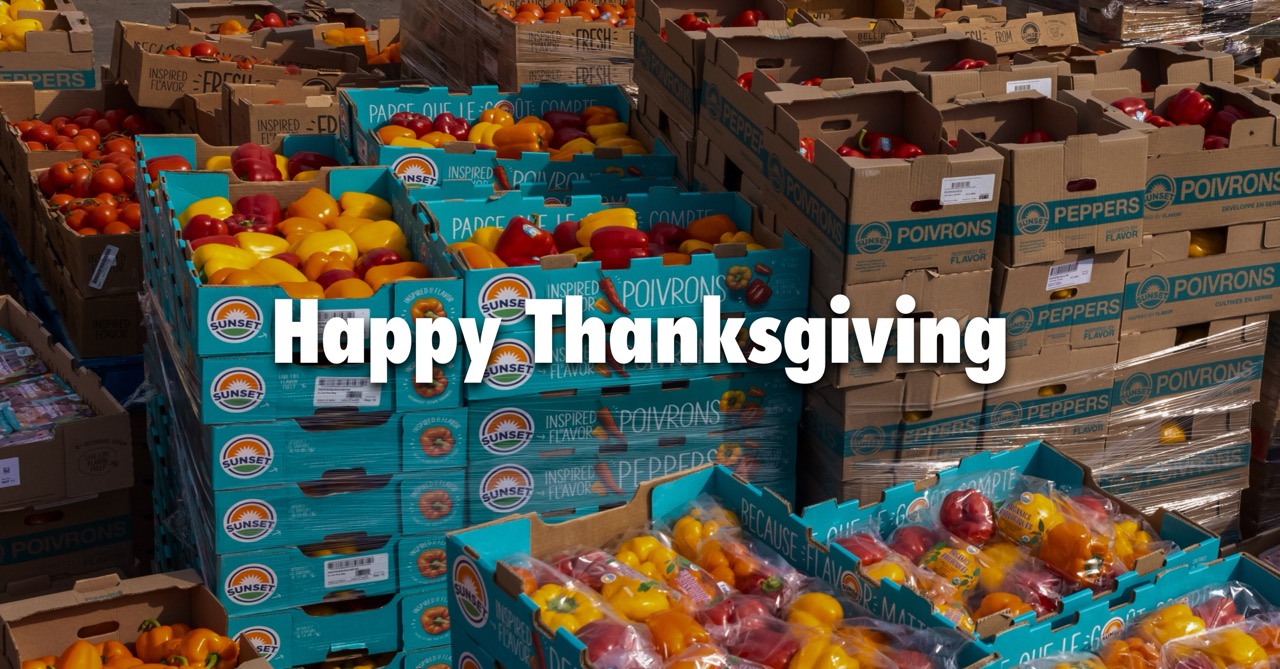
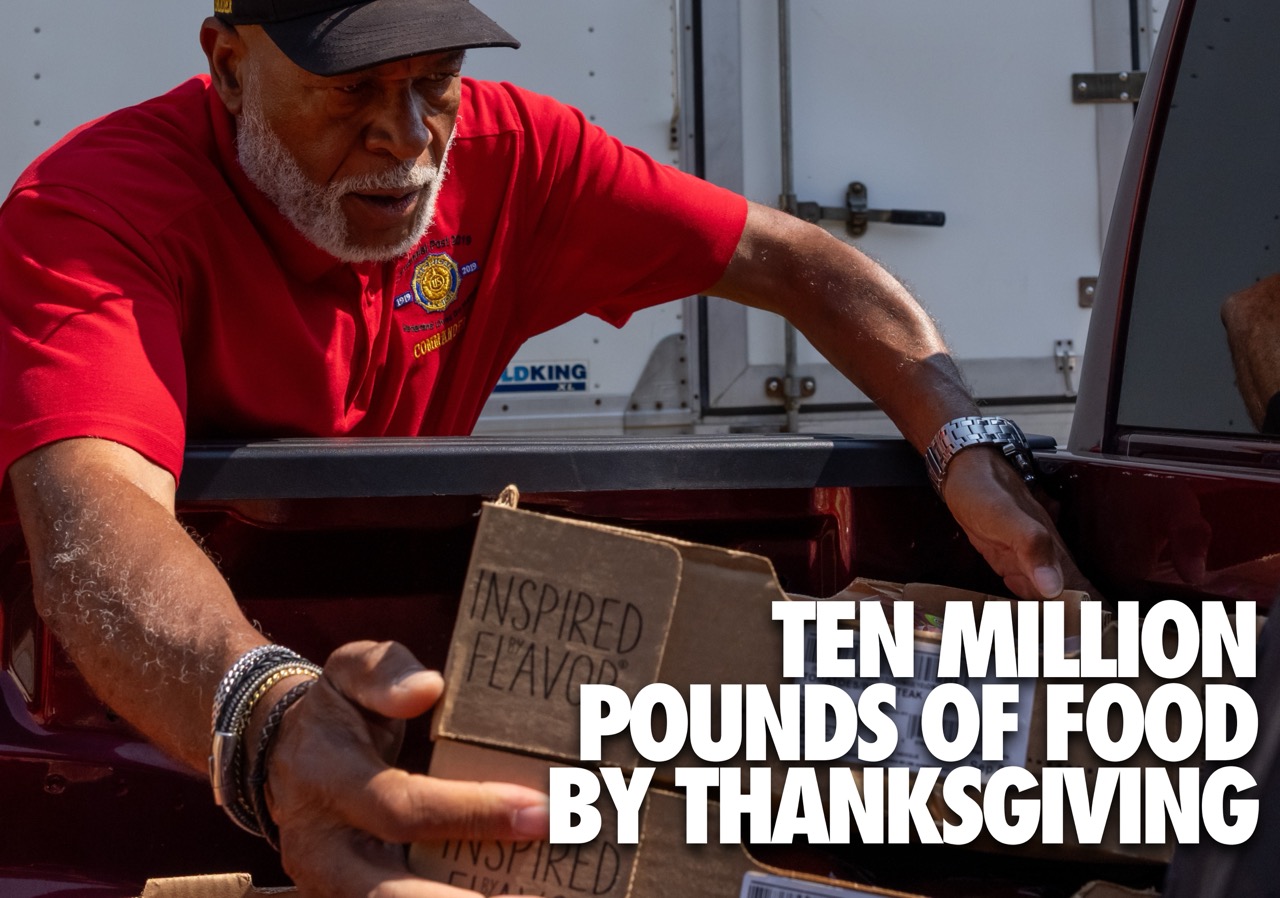
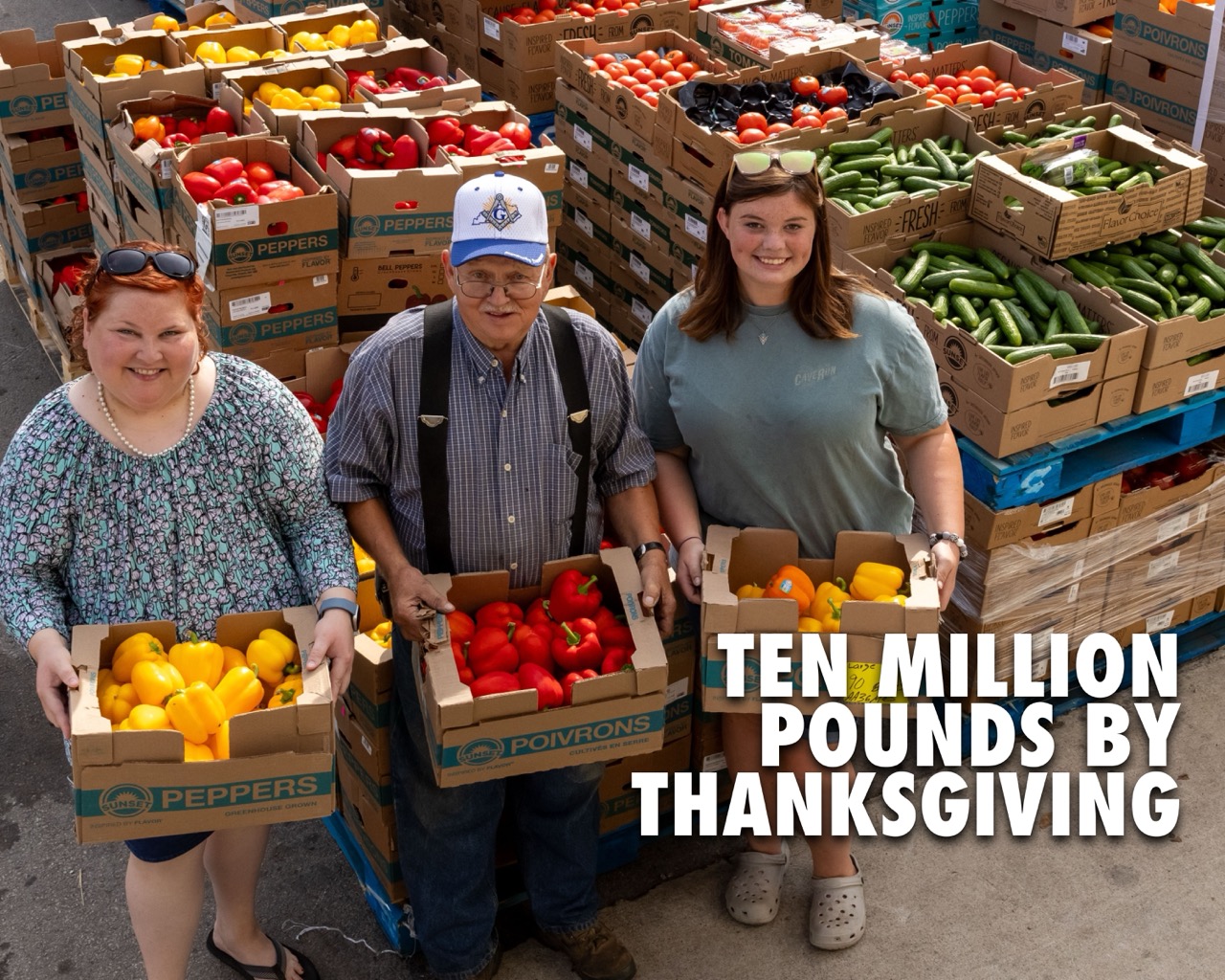
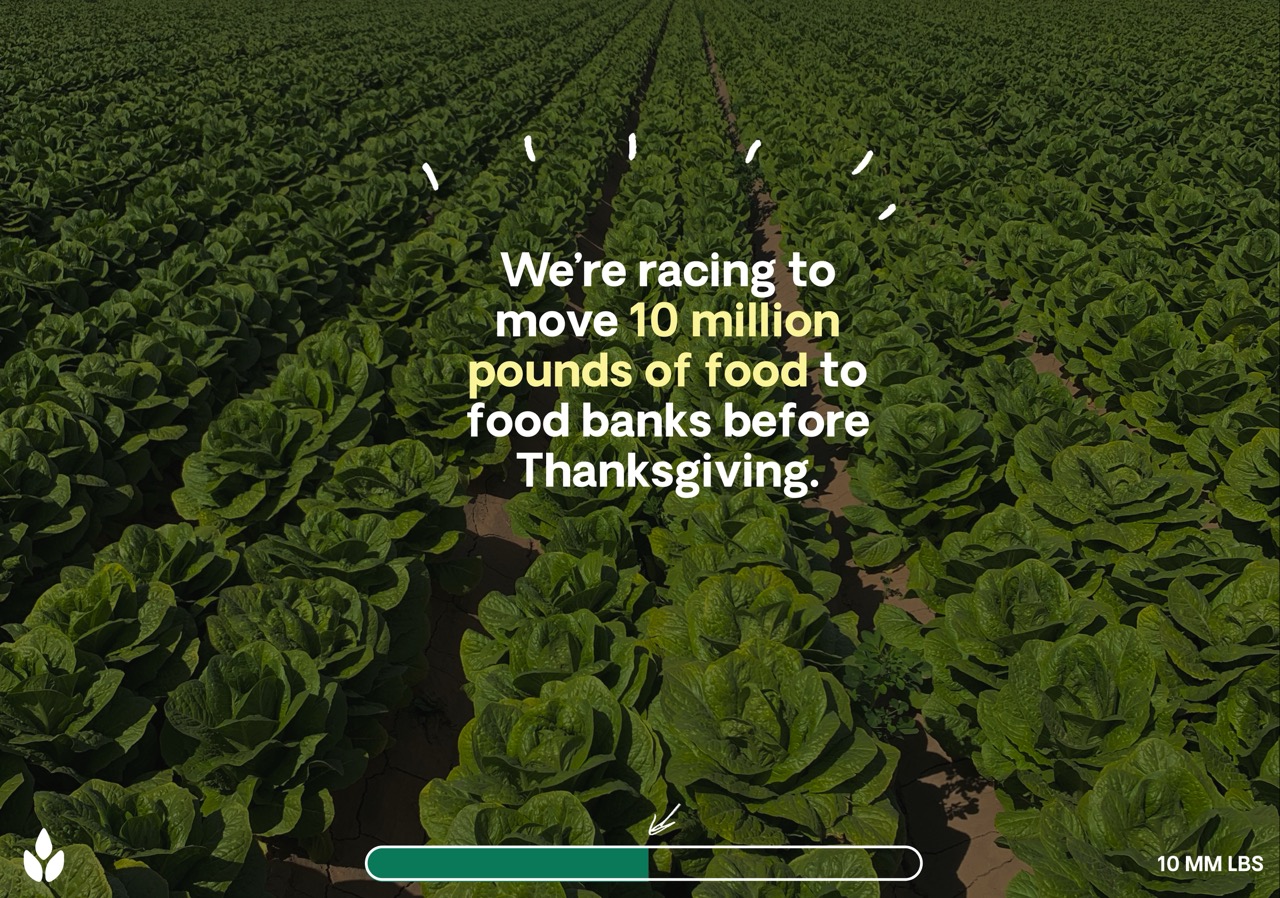
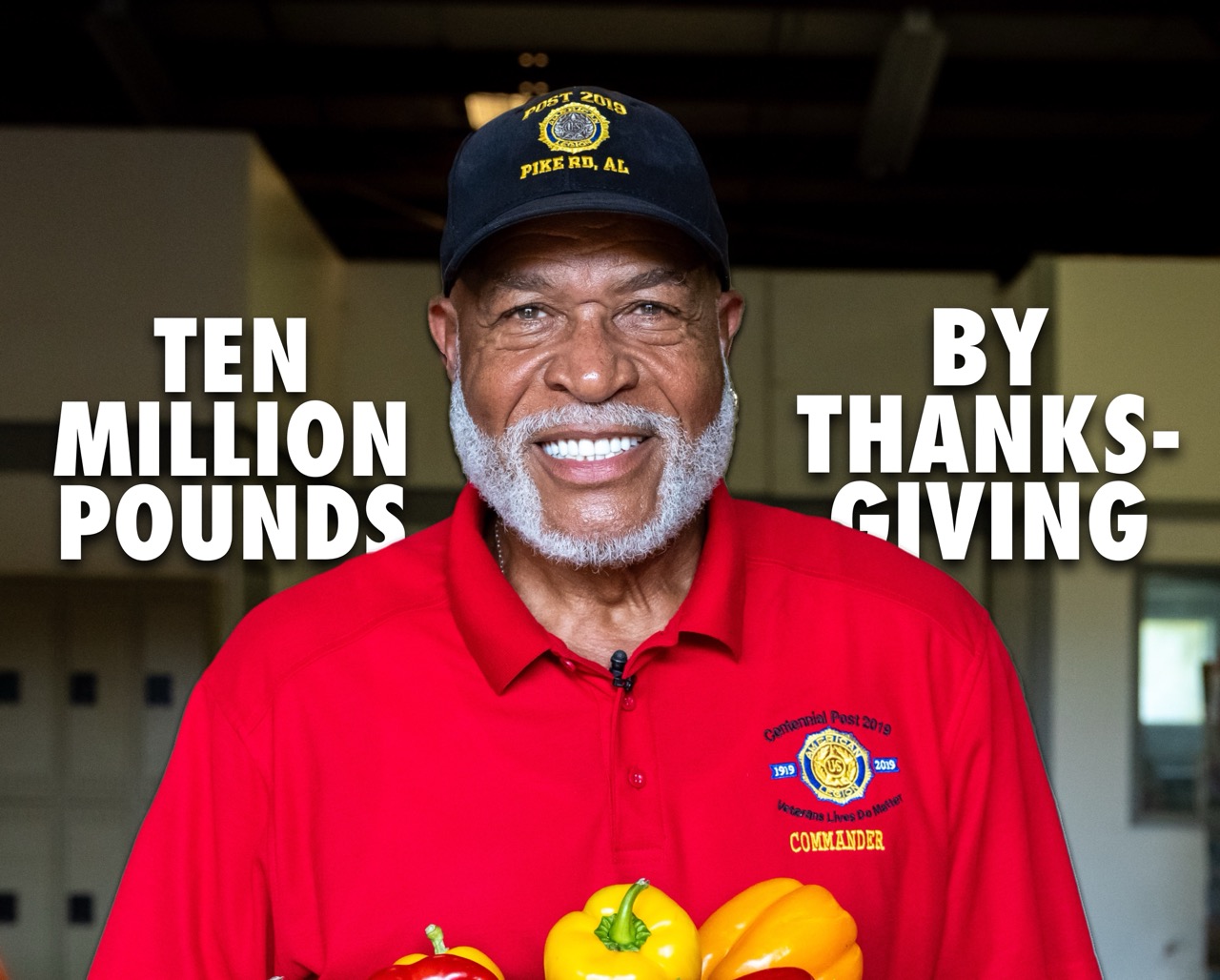
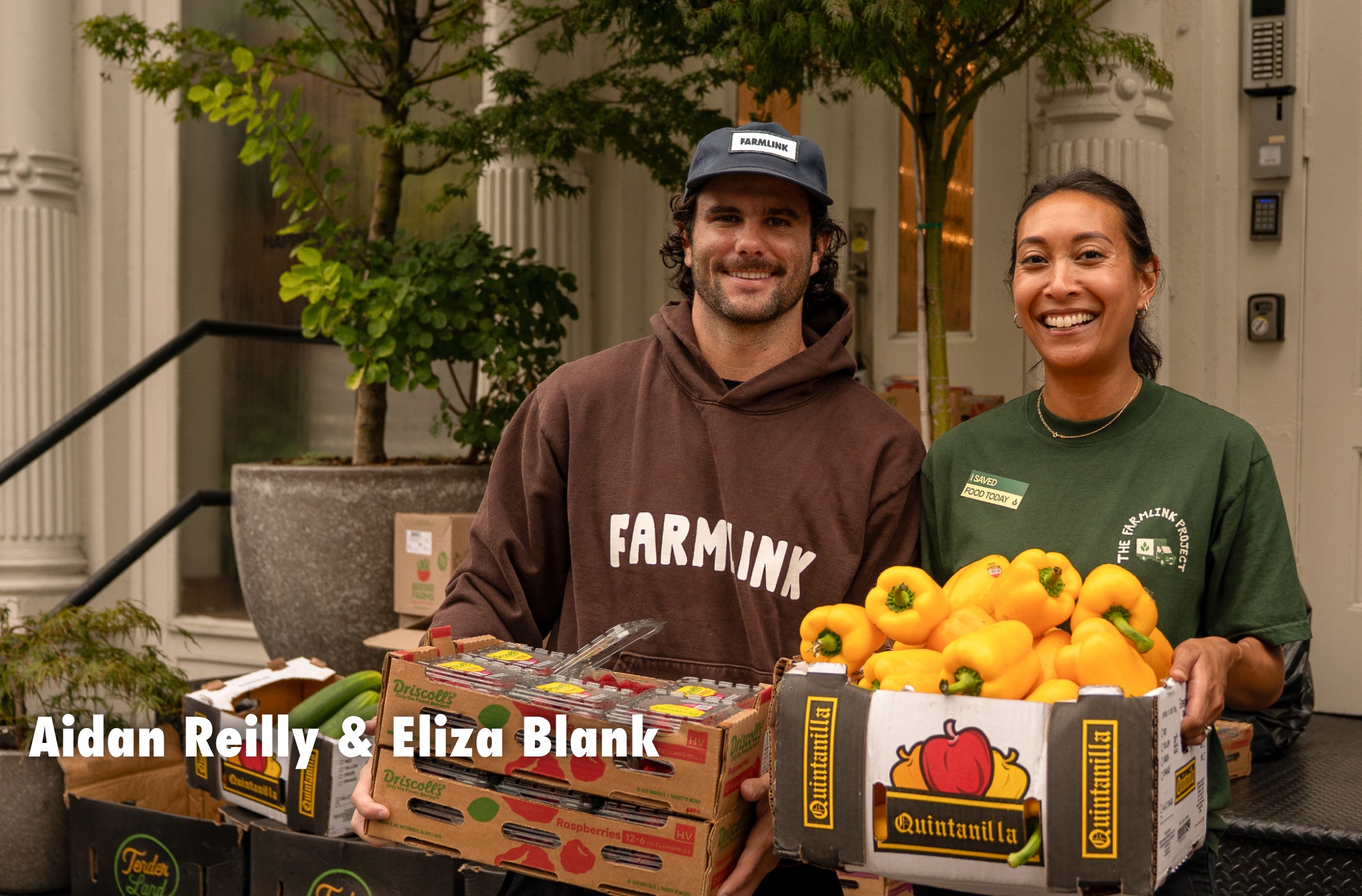
.svg)
.svg)
.svg)